|
The notion of the feckless poor is a common narrative among conservatives the world over. The persistent insinuation is that people are poor or 'under-performing' because of a lack of morals. Poor because they don’t work hard. ‘There is opportunity everywhere’ the conservatives say, you simply have to take ownership of your life and pursue it, if you don't, there is no one to blame but yourself.
This week, after a series of circumstances and events that one could not describe as anything but farcical, dishonest and lacking character, Scott Morrison was installed as leader of the Liberal party and Prime Minister of Australia. Among the values espoused in his first press conference, the common call to arms for conservatives of, ‘if you have a go, you’ll get a go’ featured. If you have a go. The reality is, in action, there are plenty of people who ‘have a go’ and don’t ‘get a go’ in this country. The asylum seekers imprisoned on Manus Island, having a go, seeking asylum, as is their right. Is undertaking a treacherous journey to protect your life and that of your family not really having a go? People on the NDIS, leaving about half of the people with disabilities worse off than they were under previous schemes, despite the government spending twice as much. Are these people not having enough of a go? The 2.9 million Australians that live below the poverty line, including the 36% of them who rely on wages as their main source of income, are they not having a go? Should they simply, as Malcolm Turnbull put it “…seek to earn more”? Is the renewable energy sector, with it’s huge strides towards creating cheaper power than fossil fuel sources by 2020 not really having a go? Are students in under-performing schools not having a go? Hamstrung by funding cuts and a teaching profession that treats teachers so poorly that 50% of teachers leave the vocation within a few years of starting, are we sure that these students not having a go? We need to beware of claims of equality that aren’t matched by the relevant social and legislative supports - …in societies which claim to recognize individuals only as equals in right, the educational system and it’s modern nobility only contribute to disguise and legitimise in a more subtle way the arbitrariness of the distribution of power and privileges which perpetuates itself through the socially uneven allocation of school titles and degrees. – Pierre Bourdieu & Jean-Claude Passeron. If we are really serious about giving everyone a go, then we must be serious about improving equality of opportunity for everyone. Not demanding contributions upfront from the most vulnerable, but making it our job to help them get to a place where they are able to contribute. Regardless of our ability or circumstances, we are here to make a contribution, rather than take one; that in order to you to do better, you don't think someone else has to do worse – Scott Morrison The real test of the government will be to see how serious they are about building an environment that does, in fact, foster growth and opportunity for all, and not simply a chosen few. We will be watching closely.
http://www.abc.net.au/news/2018-05-01/third-of-ndis-participants-feel-no-better-off/9716282
https://www.acoss.org.au/poverty/ https://www.smh.com.au/education/why-up-to-half-of-all-australian-teachers-are-quitting-within-five-years-20170605-gwks31.html https://www.afr.com/news/transcript-of-new-prime-minister-scott-morrisons-first-press-conference-20180824-h14h1a https://www.forbes.com/sites/dominicdudley/2018/01/13/renewable-energy-cost-effective-fossil-fuels-2020/#36a259674ff2
Organisational dissonance occurs when an organisations stated beliefs, purpose, culture and actions do not all align.
There are plenty of examples of organisational dissonance, and currently, in Australia, we can see it playing out in the highest levels of government as well. Some of our bug bears, and most glaring contradictory misalignments include; Organisations that claim that businesses should be a force for good but are themselves, non-profit entities. Taking the benefits of non-profit status, while having the stated aim that it is, in fact, businesses that should be the driving force for change. Political parties that are staunchly anti-union, anti-strike action and generally have an attitude of ‘grin and bear it’ when prescribing action to their constituents, shutting up shop and closing down parliament to sort out their own internal problems, rather than simply do their jobs. Non-profit organisations that claim to want to have long-term impact, but only focus on selling and promoting short-term, instant gratification projects and activities without working to have programs and frameworks for the long-term. At the same time failing to help their supporters understand and see the value in long-term engagement to solve problems. Organisations with stated aims to assist members of a community through a single area of intervention, wanting to help a group of people, but only providing one element of the help. Ostensibly because they care about the welfare and opportunities of this particular community in need. At the same time they are refusing to work alongside or collaborate with other organisations, who provide different kinds of necessary support, to the same community. This kind of in-fighting among organisations is rife and causes misery inside and outside of the organisations. Schools that claim to value education and delivering quality education to children, that simultaneously cut the lowest performing and most in-need students in order to keep their performance results high. Organisational dissonance is one of the biggest blocks to actual equality of opportunity, as we descend further into a culture of ignoring the gaps between stated aims and beliefs and actions. No-one is perfect, no organisation is perfect, but systemic hypocrisy and dissonance should be identified and changed. Quickly. When the Just Be Nice Project works with out partner organisations, one of the first things we look for is signs of organisational dissonance, staff dissatisfaction, cultural difficulties, uncertain future goals and a lack of trust. It is possible to align what you say you want to do, and what you do and how you do it. It might not be easy, but it is possible. That is what makes character-led organisations so valuable.
Imagine a scenario where you are in need of help.
Perhaps you are homeless, perhaps you are a struggling single parent. You have been battling this scenario for many years, you have made efforts to improve your situation, but it is exceptionally difficult. From time to time, over the years, people have popped in, asked for your story. They have listened, empathised, express sympathy. You have told them your story, your fears and difficulties. It is emotional labour. Exhausting. You trust that they care. Then they do one thing for you, maybe two… Maybe you never hear from them again. Maybe after the story they don’t do anything. Sometimes, after a big effort of help, for a period of time, when it all gets a bit much for the acquaintance or friend, when the service runs out of resources, or when the family lacks the material means to continue to assist. Then, after the glimmer of hope. After the baring of your soul and exposing your most vulnerable fears and difficulties, nothing. The promise of help, the promise of understanding and a feeling of connection and possibility. Then nothing. Now imagine this happens over and over again. And over and over again. Eventually your ability to trust that good things can happen, that help is real and might work is damaged. Maybe irreparably. When real help turns up, after all of these disappointments. When actual opportunity knocks, how would you have the capacity to not only recognise it, but to take it up wholeheartedly? Consider if surgeons started surgery before they were confident that they knew what was wrong, or that they started doing surgeries without taking the time to do the training and learning about how to diagnose and perform surgery. Consider if they started operating before they had the resources to finish the surgery, stopping halfway and leaving you open and vulnerable on an operating table. We would consider that to be negligent, we would not consider ‘isn’t some surgery better than none’ to be an adequate excuse. Likewise, sometimes rushing into ‘help’ without proper a proper understanding of what is happening, what is needed to help and the resources to help can be worse than waiting, taking your time and ‘not helping’ right away. People in need, do indeed need people to be nice. We can all be nice, if we are already nice, we can all be nicer. It is harder to do good. Doing good requires time, dedication and resources. Doing good requires more time, but being nice can happen right now. If you find yourself in a situation where you feel compelled to do good for someone in need, maybe take a moment to audit your capabilities and the needs of the person you are speaking to. Is it a moment to Be Nice, or is it a moment to Do Good? Be honest with yourself and with the person in front of you. How many botched surgeries would it take for you to distrust surgeons and perhaps end up avoiding life-changing or life-saving surgery because you'd been let down before? If that same surgeon had simply said, "I don't know just now. I can't do anything right at this moment, but I am working to get the skills and resources together to be able to fix this for you or others in the future. Right now I can be nice, be understanding and apologise that the help that you need is not available. I can seek out people who may be able to help, but I'm not sure where they are or where to start. Right now, I can give you a coffee, a sympathetic ear and a moment of empathy and understanding. I am sorry that the help is not right here for you. I will help those who help others so that this does not remain a problem for ever." In the future, the person needing help may indeed have the trust required to buy in to the help, when it finally arrives. Improving the process and outcomes for everyone. We encourage everyone to be nice, on their own time, all the time. We help everyone to do good, ensuring that you become part of a process that provides the assistance that people need, when they need it, for as long as they need it. If you'd like to be a part of the solution. Subscribe and get in touch below. We'd love to have you.
Often we are asked about how it is possible to deal with particular issues.
Particular Issues. For many, the journey into the world of positive impact is sparked by a feeling of needing to do something about a particular issue. Often people search for things to do based on these particular issues, rather than searching for the most appropriate way to help people in need of help. They are not guided towards the most appropriate way to help based on what they do the best and what is most needed by those seeking help. This misdirection, taking the focus from effective help to particular issues, is exacerbated by the language that we use around these individual causes. The sector is constantly battling to promote issues as more important or more emotive than others, rather than focusing on the most important fundamental process; Ensuring people in need, get the help that they need, when they need it, for as long as they need it. Disadvantage doesn’t have one look. It isn’t limited to one particular issue, it is a complex web of many different factors and manifestations, often overlapping and interlinked, nuanced and time dependent. In the same way treating a scratch early prevents it becoming septicaemia, dealing with issues of inequality early can prevent them becoming life-threatening and community destroying. Working to fight disadvantage means working to level the playing field. At the Just Be Nice Project we believe that working towards an equality of opportunity for everyone is the only real way to build a system that helps anyone. So if it’s not about any particular issue, what is it about? Well, lets look at what disadvantage is. Among many things; Disadvantage is having the collective noun for you and your friends go from group to pack in the media. Disadvantage is having to share a white bread sandwich with vegemite three ways for lunch. Disadvantage is time on the phone negotiating bill paying extensions with every, single, service provider. Disadvantage is being kicked out of your rental property because you were late on the rent because someone ran into your car and you couldn’t afford to fix the car you need for work, and the whole rent this month. Disadvantage is failing school because you are busy looking after your sick mum. Disadvantage is having a disability and being unable to access the help you need. It is having the same disability and being unable to access the leisure and social activities we all need too. Disadvantage is getting a bill from DHS for the damage that was done to your rental property when your husband put your head through the plasterboard wall. Disadvantage is having Centrelink make an administrative error and not pay you for a fortnight, so that for two weeks you and your family are unable to eat. Disadvantage is getting too sick to work and not having any sick leave because you are a casual employee, and disadvantage is the scramble over the next few years to pay back those credit cards and money you borrowed. Disadvantage is having a mental illness, and nowhere to go. Disadvantage is coming out of rehab and having nowhere to go. It’s the only place offered to you being a harm-minimisation facility where people still take drugs. It’s avoiding that place because you want to stay clean, so you sleep on the street, and get told “Surely anywhere is better than sleeping on the street.”, “Ungrateful”, “Sort your life out”. Disadvantage is the kid in class who can’t concentrate, for years, because from the ages of 3-10 she doesn’t get sufficient breakfast or lunch and gets told she is dumb because she is ‘falling behind.’ By the teachers and ‘dumb’ by her peers. Disadvantage is waking up in the middle of the night as a 10 year old and checking to make sure that your Dad isn’t beating up your Mum in the living room. Disadvantage is all of these things, and many, many others. Disadvantage can strike people at any moment and some people are born into disadvantage. We believe that all people should have access to the help they need, when they need it, for as long as they need. We believe that it is possible to create extraordinary positive change in the world, by helping people make ordinary positive change, and we would love your support.
Often charities and charitable endeavours are started with the best intentions. Intentions to do something.
Perhaps you have engaged because you feel inspired by a particular person or cause, maybe you were moved to action because something happened close to home. When moved to action, how do you determine what the best course of action is? You can start with a simple, and important question to ask; But then what? You are inspired to move to action because you saw a homeless person on the street doing it rough? You want to give them a sandwich?... But then what? What happens next? Do they get the long-term support to deal with mental health issues, economic difficulty and other socio-economic pressures to take them from homeless to engaged, employed, housed and happy? Does that sound like too much? You are inspired to action after seeing how hard it can be for people leaving domestic violence situations. You donate sanitary goods to an organisation you see in your Facebook news feed… But then what? What happens next? Do they get support in housing for as long as they need it to re-establish themselves? Are they provided with moving services, economic assistance? Are the children moved to new schools or supported where they are? Are necessary training arrangements made to ensure that the parent leaving is going to be able to find gainful, relevant and adequate employment? Is the person they are leaving being given assistance, counselling and being managed in a way that reduces risk to the family and the community? Does that sound like too much work? We should be aiming to focus our efforts not on ‘Whether we did something’, but ‘Whether a complete outcome was achieved for the person/s we are trying to help.’. By focusing on the effort of the doer rather than the outcome for the person in need we have skewed the kinds of interventions available to the short-term, donor focused activities that might be nice to do, but aren’t necessarily doing the good that is required. If you were in hospital for a broken leg and someone gave you a beanie and some soup, then told you to be on your way, it is unlikely you would be happy with that. Sure, it’s nice, and thank you for the sentiment and effort, but it would be great if you could fix my broken leg please. That is the most pressing problem for me right now. If the broken leg was fixed (requiring the time, effort and resources of multiple professionals, a multi-billion dollar healthcare infrastructure and the means to pay for it all), and the person remained hungry and cold, that would be the perfect time to step in and give them soup and a beanie. The ‘But then what?’ question would be satisfied. The leg is fixed, hunger resolved, they’re no longer cold and can go home now. (Assuming this person has a home to go to). If we don’t emphasise solving problems for people in need before looking for short-term participation opportunities for people looking to do something, then we will continue to waste time and resources that could be used to great effect, simply through mismanagement. Being nice is important, and it revolves around what you do and how you act. Doing good is about the people you are helping. Doing good revolves around what happens for the person/s who need help. At the Just Be Nice Project we identify opportunities for impact and manage those resources into long term outcomes for people and communities who are experiencing disadvantage. Believing that people are capable of more than simply popping in for a moment to do some token activity under the guise of ‘doing good’, we believe in integrating solutions that allow people and organisations to benefit in a variety of ways from continued engagement with systems of assistance that are focused on outcomes for people in need. Your beanie and soup might be a wonderful help, at the right moment, for the right people. In another context it might be a shameful waste and an inefficient, donor-centric intervention. It’s simply a matter of timing and management, of both at-risk communities and donor resources. If you are a professional with skills in any industry, a talented hobbyist or an interested, intelligent and engaged individual, it is likely that the most good you can do will be utilising those skills. Not simply spooning soup into a cup or planting a tree. Those jobs are important, but skilled, effective help also requires skilled effective humans, doing what they are best at. Keep on asking, keep on improving and as always, Just Be Nice.
In response to yesterdays article Transactional Vs Transformational Impact, we received some excellent questions about why the NFP sector has a heavy focus on transactional altruism and transactional impact opportunities, so we thought we would take a moment to address some of these questions today.
“Why does the NFP sector do this? In my limited experience, very few of them seem to want your "help", just the transaction or series of transactions. And this raises questions about the money, where it goes, how much gets to the cause itself, etc. And when they want to engage with me, getting the usual phone call thanking me for my patronage, what my money has achieved and then asking for more money does not really do it for me. Guess the question is how you turn your donor base into an engaged and usable base of people that will get their hands dirty and really want to see the particular issue disappear.” While this is a complicated and multi-faceted question, we thought we would address some of the main reasons for the current state of affairs. Firstly, there are approximately 600,000 non profits in the country right now, which works out to roughly one NFP for every 40 people. Of those ~600,000, 56,377 are registered with the ACNC (Australian Charities and NFP Commission)*. This equates to one registered NFP for every 440 people. An entire organisation for every 40 people in the country. This doesn’t include all the individual Go-Fund Me, Crowd funding or private Paypal pages for various individual causes or fundraising opportunities. For fundraising purposes, if we divide the number of NFP’s by the number of Australians aged 15-80 we end up with an organisation for every 31 people. We aren't saying that people in the ages of 0-15 and 80+ are unable to contribute, but in the most active demographic of the population the ratio of people to organisations gets even more extreme. We will dive deeper into the nature and challenges of the concept of Non-Profits at another time, but for these questions it helps to give an idea of the scale of competition. For further reading on why non-profits aren’t the answer to solving problems as they operate currently, read this article The Problem With Transactional Altruism. The number of charities and the fact that 1% of non-profits take up over 50% of the available sector revenue means that the marketing of the remaining organisations must produce ‘bang for buck’. Unfortunately, after decades of chasing this ROI for marketing dollars, the overwhelming emphasis inside these organisations has gone from effective ‘help’ to effective ‘emotional activation resulting in donations’. If one organisation says, “Hey guys, we are doing a great job here, but we need lots of funding, we need it for a long time, require heaps of multi-level engagement and we can change lives but we won’t solve this complex problem for 10 years…” In the current climate, it makes it hard to get funding. Instead a typical campaign looks like this; Here is a picture, graphic, video or story about someone who has a very visible kind of disadvantage. Very visible is important because a guilt response needs to be activated right away in order to get a funding outcome. Queue – sick children in hospital, animals with very visible signs of abuse, shocking images of the outcomes of domestic violence, rough sleeping homeless people etc… The use of visible disadvantage plays to the short attention span of the audience, and seeks to get an emotional response on the spot in order to get them to donate. See Image – Feel Bad (Emotional/Empathetic/Guilt Response) – Get told that this organisation helps – Donate – Feel better… Repeat. There are several downsides to this kind of promotion, which has been going on for decades. Firstly, the emphasis on visible disadvantage has disrupted the education of the greater public regarding all kinds of disadvantage. It skews this understanding on many levels, including; selling the idea that, if you can see it, you understand the disadvantage. Organisations use this tactic to drive donations in every NFP sector. By telling you that “Your $5 changes someone’s whole life for the better.”. You are not only being encouraged to believe that you are getting great bang for buck, you are also learning that people who are doing it tough can be fixed for only $5. This ignorance of the real complexity of causes of disadvantage prevents the understanding, investment and investigation into long-term interventions to help all people who need help. A further downside of this misunderstanding of real disadvantage, the focus on short-term easy to understand interventions and the marketing of visible disadvantage, is that the government engages with the community in the same way. With only three-year state and federal terms, Governments are largely interested in ‘handshake’ moments and short-term interventions as part of the strategy for re-election. The government focus on good news stories and short-term outcomes has significant implications for the structural operation of the NFP space, as Government funding provides over 40% of total NFP funding. The two final, and perhaps most significant barriers to the efficacy of the NFP sector in Transformational Impact are; The focus on What they do rather than What happens to the person getting help. And; The focus on ‘Particular Issues Disappearing.’ We will touch on those issues over the coming days to prevent this being 10,000 words long. You can see when the vast majority of the funding of an industry comes from parties that doesn’t want actual engagement, there is little interest in making transformational change. The unfortunate downside of operating in that fashion is that now people are fatigued by visible disadvantage, aware of the inefficiencies of the sector, looking for more to do themselves and operating in an environment that hasn’t educated them sufficiently on the actual causes and realities of disadvantage in all its forms. The Just Be Nice Project was started in response to these inefficiencies. Creating an eco-system where transformational impact is the mandatory style of engagement. Focusing on getting people the help they need, when they need it, for as long as they need it, regardless of how they come to experience difficulty. We embrace the complexity by working in a dynamic way towards an outcome for the people and communities in need. If you were building a house, you wouldn’t give all the money only to the carpenter and hope for the best. You would let the builder manage the resources to all the trades and suppliers, having them come in and out, as required, until the job is done properly. We operate in a similar way, managing resources to keep the best resources coming in and out until people in need are housed, employed and have good mental health. It’s not always simple, but if you don’t demand a short time frame, it is nearly always possible. With a clear outcome for the people in need, efficient utilisation of skills, engagement and resources, and an acknowledgement that no one person or intervention is the complete answer, we are able to build dynamic, relevant and effective solutions to solve complex problems. Problems that need solving, create transformative experiences for those helping and those receiving help while educating everyone along the way. Thanks for the questions! Stay tuned for more discussion during the week. If you would like to ask more questions or get involved, sign up below. We'd love to have you on board. *As of 12/08/2018
Transactional Impact is the process of engaging in a simple transaction in order to have, or participate in an attempt at positive impact.
Transformational Impact is the process of changing the way that you do things in to order to have, or participate in an attempt at positive impact. Transactional impact is short term, while Transformational impact is long-term. Transactional impact is easy to bolt onto someone’s life or organisation, while Transformational impact becomes a part of someone’s life or organisation. There is often confusion between regular-transactions and transformation. Transformational impact changes not only what you do, but how you do things. Transactional impact is doing your job and then handing a cheque to an organisation. Regular transactional impact is doing this on a regular or semi-regular basis. Transformational impact is participating in impact through your job and using those same cheques to support that impact, and the transformations of others. In transactional impact you are abdicating the responsibility of the ‘doing good’ to somewhere else, whereas in transformational impact you are becoming an active part of the ‘doing good’. The difficulties in funding, long-term outcome generation and educating people on the real and pervasive causes of disadvantage are amplified by the NFP sectors insistence on promoting transactional impact as the best way for people to help. Understanding the importance of long-term interventions, education regarding the real barriers to equality of opportunity and continuity of engagement are amplified by transformational impact management. Rather than simply telling people that their transaction is changing the world, and that they should hand over the responsibility for improving the lives of others to us. We believe in transforming organisations and individuals into forces for contributing to the ongoing development of equality of opportunity for those in need. Partnerships rather than simple purchases. Don’t let anyone tell you that there is no way to combine the work you do, the skills you have and the resources at your disposal into impact in real time, over the long term. Our transformational impact management strategies mean that the better you are at your job, the more good you can do, and the easier and more rewarding it is to do it in the long term. We think that’s pretty awesome.
Today we are pleased to hear the latest Podcast from Purposeful featuring Just Be Nice Project founder Josh Reid Jones.
It was a pleasure to be interviewed by Mike and discuss impact, social responsibility and being nice! Listen below or follow the iTunes link - apple.co/2lhU5st Like, Listen and share it around! Collaboration: the action of working with someone to produce something. At the Just Be Nice Project collaboration isn't simply an aim, its a method. Helping people, help people. It was our pleasure to assist with the Little Dreamers Australian Gala in August, with Just Be Nice Project Founder Josh taking on the role of MC for the evening. We are thrilled to have been a small part of an evening that raised $26,000 for the support of young carers and special siblings in Australia. For more information on Little Dreamers, feel free to check them out HERE. If you, or your organisation is looking for ways to Just Be Nice, get in touch! We'd love to work with you! |
Just Be NiceA collection of articles relevant to pursuing the effective execution of altruism in the search for equality of opportunity. Archives
February 2020
Topics
All
|
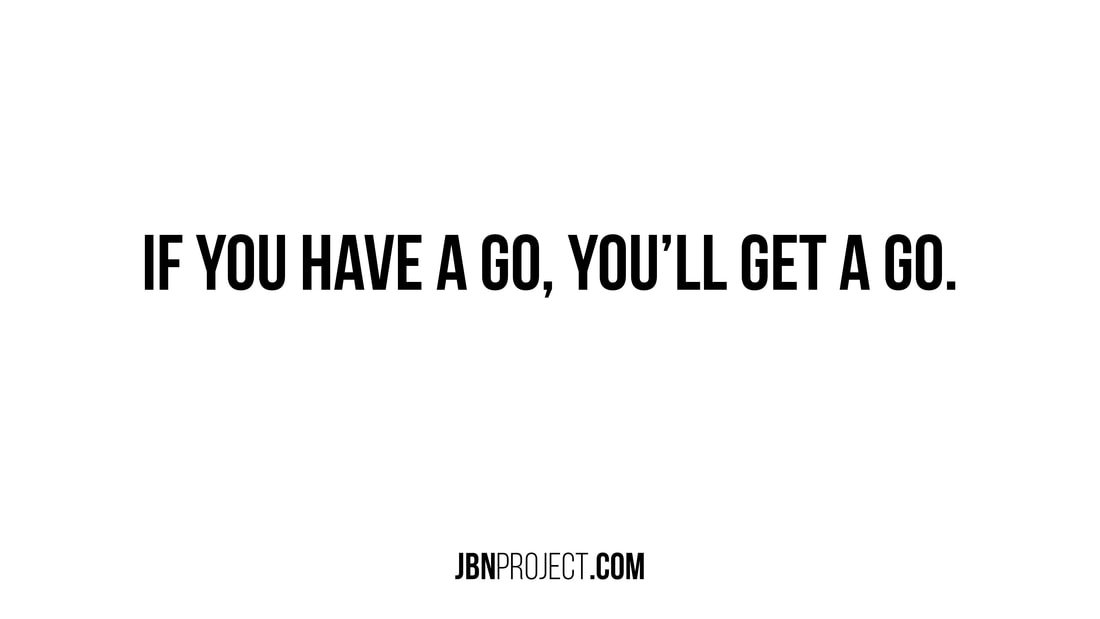
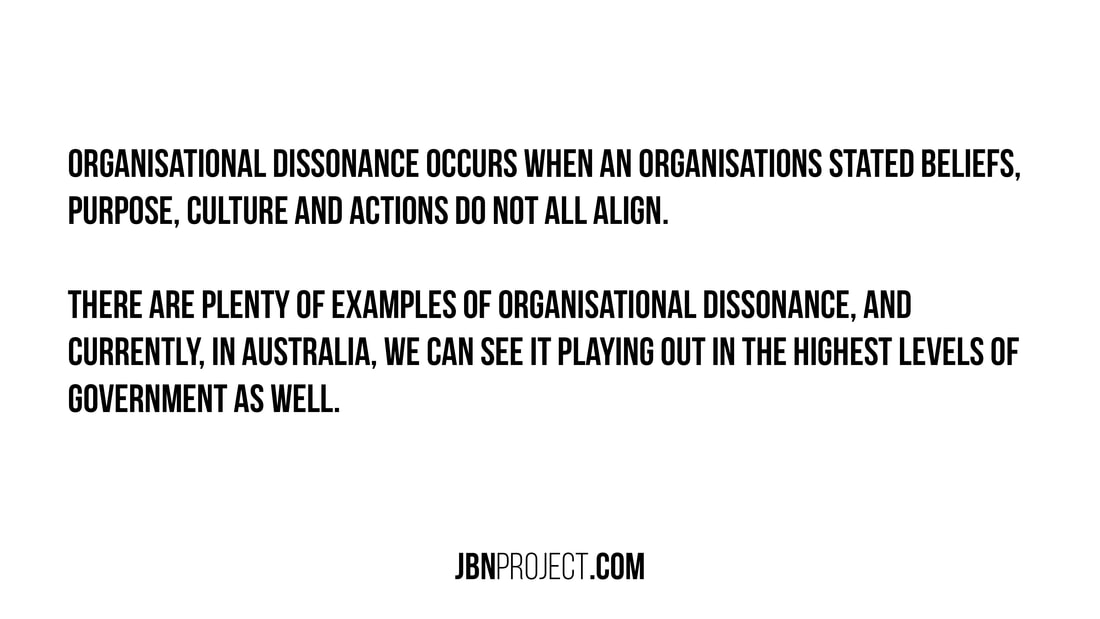
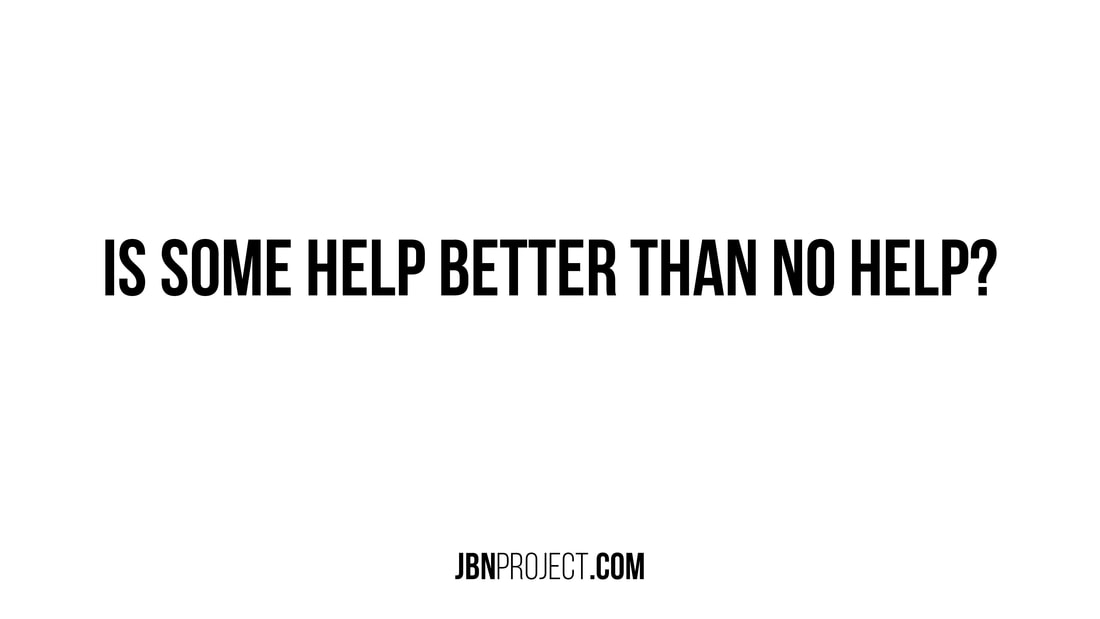
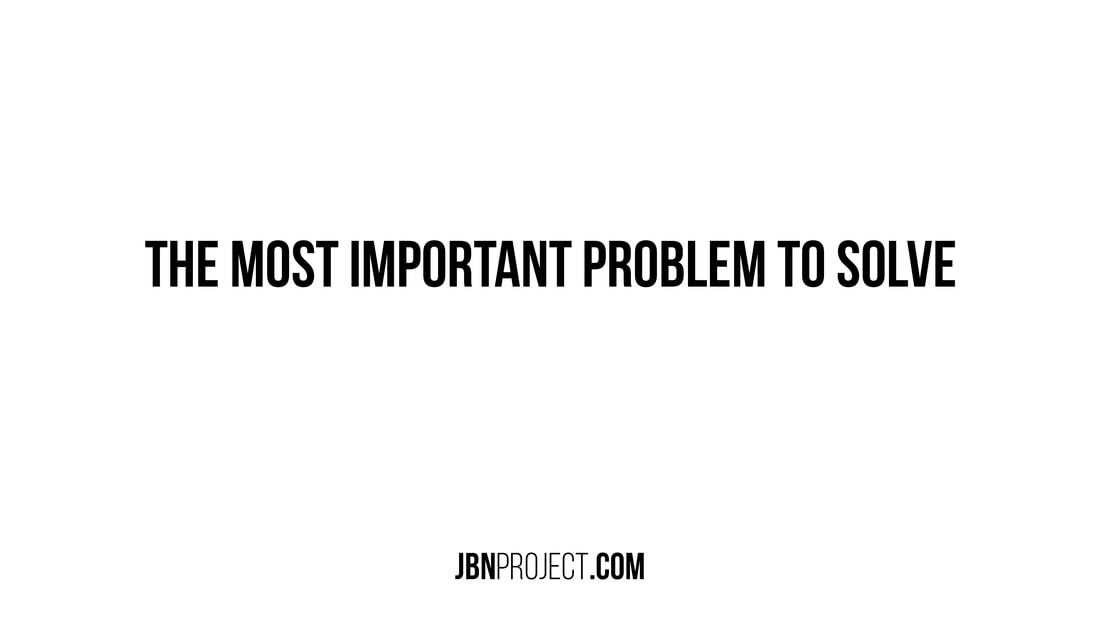
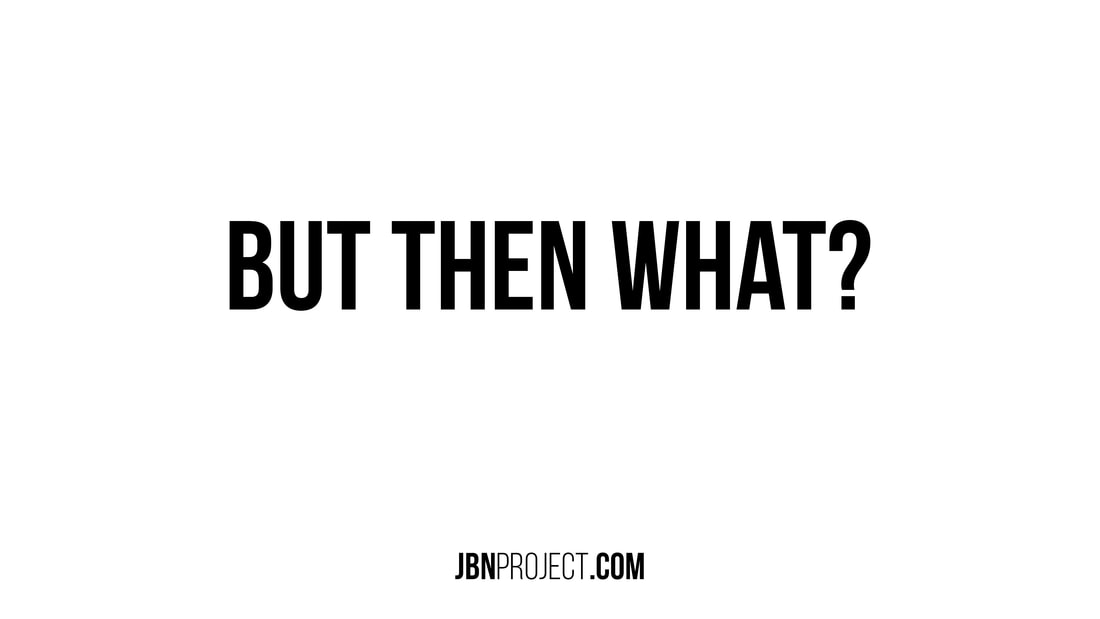
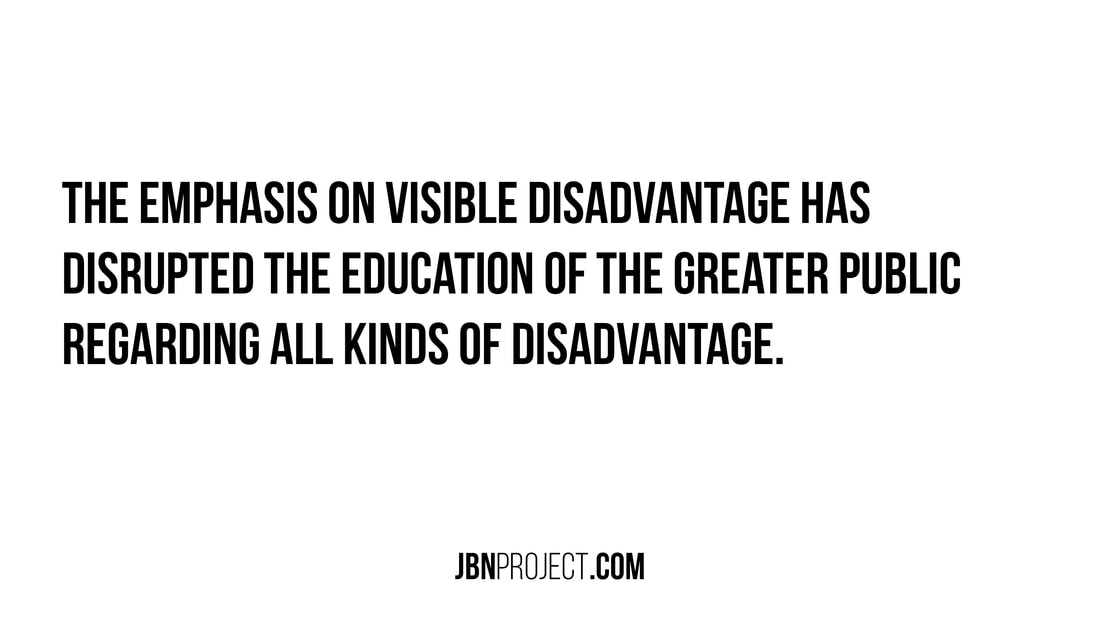
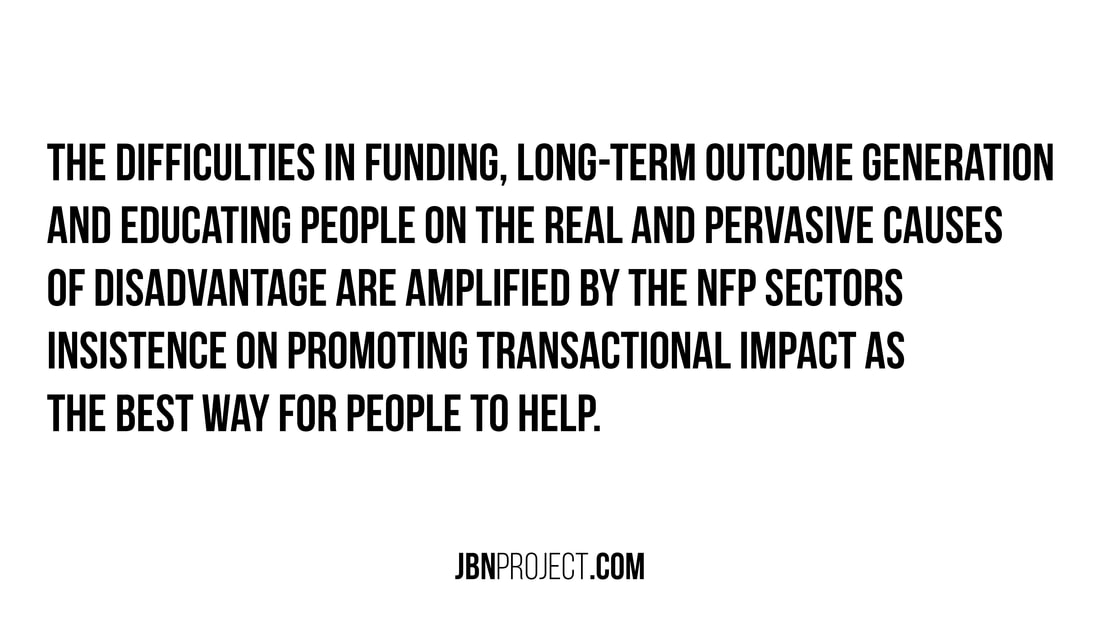
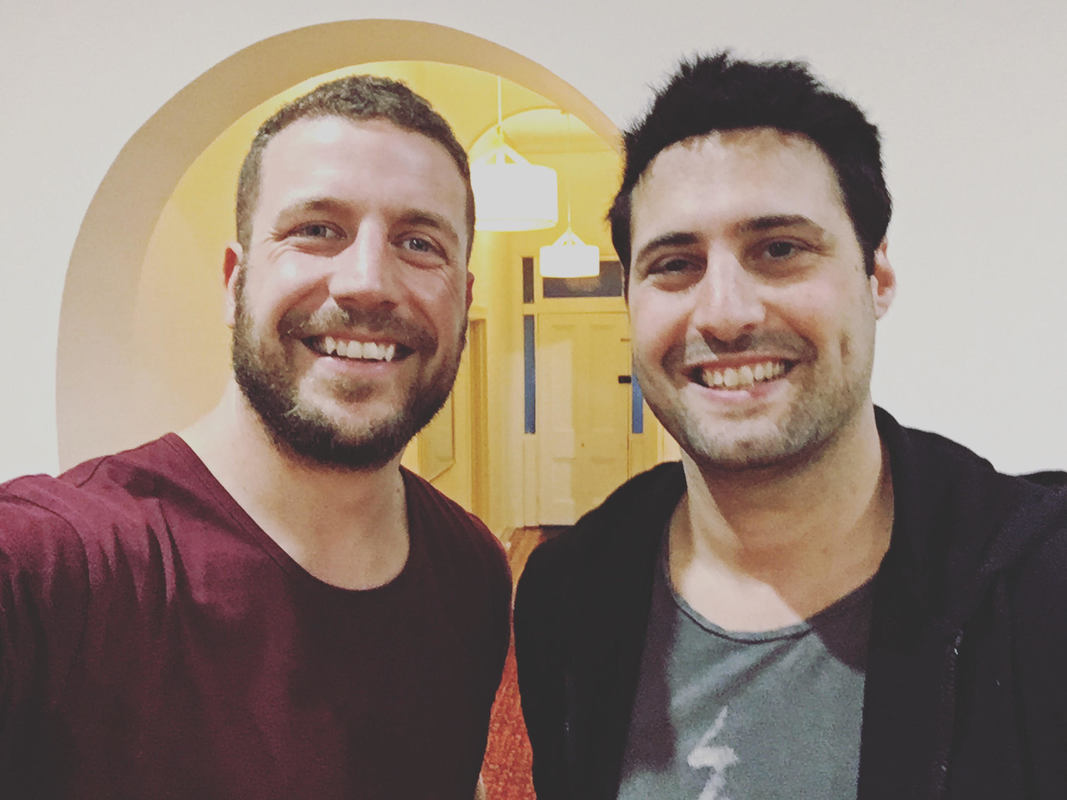
 RSS Feed
RSS Feed